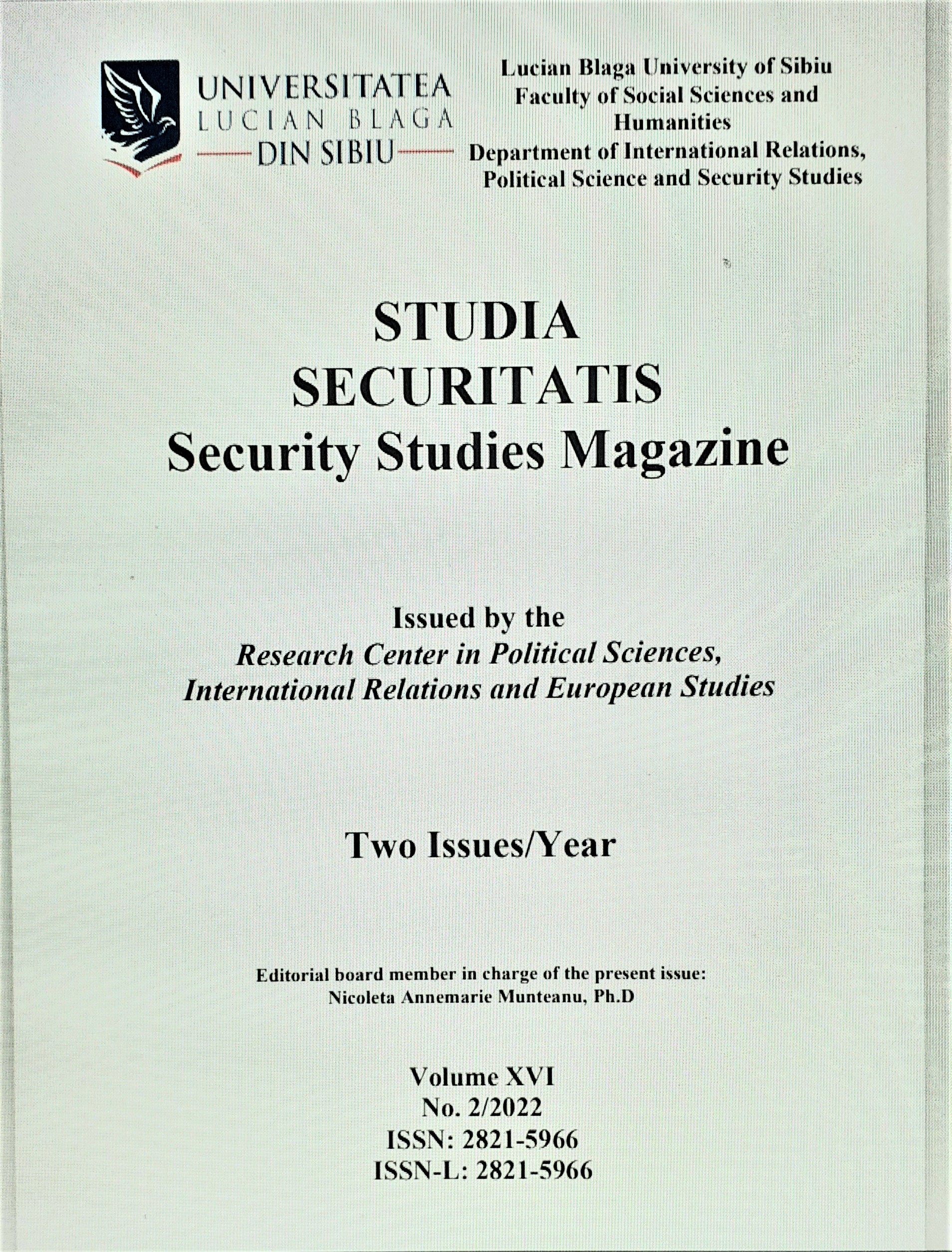SLIDING INTO ANARCHY: AN APPRAISAL OF LAWLESSNESS IN NIGERIA AND THE QUEST FOR HUMAN SECURITY
SLIDING INTO ANARCHY: AN APPRAISAL OF LAWLESSNESS IN NIGERIA AND THE QUEST FOR HUMAN SECURITY
Author(s): Olagoke Oluwafemi Awotayo, Olawale Olufemi Akinrinde, Ewube John MbengSubject(s): International Law, Human Rights and Humanitarian Law, Civil Society, Governance, Public Administration, Social history, Economic policy, Government/Political systems, International relations/trade, Security and defense, Welfare systems, Developing nations, Social development, Present Times (2010 - today), Social Norms / Social Control, Globalization, Politics and Identity, Corruption - Transparency - Anti-Corruption, Peace and Conflict Studies, Labour and Social Security Law
Published by: Editura Universitatii LUCIAN BLAGA din Sibiu
Keywords: Human security; anarchy; insecurity; lawlessness;
Summary/Abstract: The notion of human security has become a dominant theme in international political discussions. This is partly explained by the fact that the production of arms and ammunition does guarantee security. Economic, food, health, environmental, and personal safety are all components of human security. In Nigeria, the country is grappling with security hitches cutting across the six geo-political regions. Kidnapping, banditry, robbery, murder, and wanton killings are common items in the daily news. More worrying is that, despite huge resources being injected into the defense sector, the Nigerian government seems unable to curb this menace that has been troubling the nation's well-being. The government, security agencies, and intelligence organizations, on the other hand, appear to be caught off guard by the atrocities committed by terrorists, herders, and instances of interethnic violence pointing to the fact that Nigeria is prone to anarchy. Against this background, this paper contextualized the lawlessness in Nigeria with specific reference to human security. The paper employs the qualitative method of data collection that utilizes secondary sources such as newspapers, the internet, and extant scholarly works. Based on findings, the rate at which schools are closing, frequent jailbreaks, rising food prices, citizen apathy toward the government, the obvious inability of the government to uphold its own end of the social contract it made with its subjects, and failure of all security containment strategies are all overt signs of a failing state. It is submitted that there is a need for government to be conscious of its primary goals, which include welfare and the protection of people's lives and property. The article suggests that Nigeria should employ artificial intelligence to combat the threat to the nation's status as a sovereign republic, which is being posed by groups that have taken over the numerous ungoverned spaces that dot the country's territory. Nigeria should also invest in digital learning methods and coordinate its numerous security agencies. The political order, authority, law, and structures must all be rebuilt because they have all fallen apart.
Journal: Studia Securitatis
- Issue Year: XVI/2022
- Issue No: 2
- Page Range: 264-276
- Page Count: 13
- Language: English
- Content File-PDF

